The Best Insulated Hunting Boots for Winter 2025: Stay Warm and Ready for the Hunt
Discover the best-insulated hunting boots for winter 2025. Our top picks reviewed will keep you warm and comfortable. Read on to find your perfect pair!
There’s something magical about winter hunting—the snow crunching underfoot, your breath turning to mist, the forest draped in white silence. But here’s the brutal truth: if your feet go cold, the hunt is over.
I’ve had boots that promised warmth and gave me frostbite. I’ve worn “waterproof” boots that soaked through in the first snow drift. And I’ve hiked five miles in stiff leather boots that felt like walking in ski boots—zero flex, all pain.
That’s why this guide exists.
Because the best insulated hunting boots for winter 2025 aren’t just a luxury—they’re survival gear. Whether you're tracking elk on rugged terrain, stalking upland birds through deep snow, or just hauling firewood around the cabin, your boots must keep your feet warm, dry, and comfortable in the worst conditions imaginable.
Hillman is changing the game this year with cutting-edge technologies, boots designed for extreme cold, and socks so warm your toes might break into song. If you're planning a late-season elk hunt, battling through arctic ice, or trekking slick trails for hours, this guide is for you.
Let’s find your perfect winter boot. Your feet will thank you.
What Are the Best Insulated Hunting Boots for Winter 2025?
When it comes to winter boots, not all are created equal. Some are too bulky. Others aren’t warm enough. And some just aren’t built to handle the unique demands of winter hunting—where moisture, terrain, and temperature all come into play.
So what sets the Boots of 2025 apart?
Let’s break it down.
Next-Level Insulation
Gone are the days of relying solely on thick padding. Today’s best-insulated boots use advanced materials like Aerogel—yes, the same stuff NASA uses—to trap heat without adding weight. Hillman’s AEROGEL 2.0 Insulated Waterproof Hunting Boots are a perfect example. They're engineered to provide toasty warmth in extreme cold without sacrificing agility.
Superior Waterproofing
Winter isn’t just cold—it’s wet. Melting snow, slush, freezing rain... it's a mess. That’s why top boots now feature elite waterproof membranes, like Hillman’s Dryhunt® 2.0 technology, that keep water out while letting sweat escape. Think rain boot performance, but built for hunters.
Rugged Traction for Icy Terrain
Slick trails, frozen leaves, and arctic ice are part of the winter landscape. The tread pattern on the best boots provides exceptional traction while moving silently—crucial for anyone serious about upland hunting or tracking games.
Fit for Function
From bungee lacing systems to flexible leather midsoles, modern boots are built to move with you. Whether you’re hiking long distances, navigating rugged terrain, or standing still for hours, the right boot makes all the difference.
Designed for Men and Women
Finally, men’s winter boots and women’s winter boots are no longer one-size-fits-all. Brands like Hillman understand that comfort and performance start with a good fit—offering gear tailored to both hunting styles and anatomy.
We’ll dive deep into the specific features that make a winter boot exceptional, and then take a close look at the best models of 2025—including Hillman’s AEROGEL 2.0 and DRYHUNT 2.0, plus a hidden hero: Ultrawarm Merino hunting socks.
Key Features of a Great Winter Hunting Boot
How to choose boots that won’t let you down when the snow gets deep and the cold bites hard.
Choosing the best insulated hunting boots for winter 2025 is about more than just warmth. It’s about performance, protection, and endurance. After years of field-testing gear from the Rockies to the Rhodopes, I’ve boiled it down to these key features every serious hunter should consider:
Insulation That Actually Works
Not all insulation is created equal. Some boots brag about being “warm,” but leave your toes frozen an hour in. The best winter boots feature:
-
Aerogel: Found in Hillman’s AEROGEL 2.0 Insulated Boots, this NASA-grade material is incredibly light yet traps heat like nothing else. Perfect for extreme cold and deep snow.
-
Fleece lining: Soft, warm, and moisture-wicking. Great for comfort and inner warmth.
-
Merino wool: Add a pair of Ultrawarm Merino hunting socks and you’re invincible. Merino keeps feet dry while regulating temperature—no overheating, no cold sweat.
If you’re standing in -20°C with a pair of thin liners, trust me—you’ll wish you had real insulation.
Waterproofing That Handles Real Winter Conditions
Let’s talk rain boot level waterproofing, but built for serious hunting. Snow melts. Rivers overflow. And boggy trails don’t care about your socks.
-
Dryhunt® 2.0: Hillman’s waterproof membrane is like an invisible forcefield against wetness. No leaks, no soggy insoles, even after miles through melting snow.
-
Rubber compounds and sealed seams for protection from puddles, sleet, and arctic ice.
-
Breathable materials that prevent swamp foot even on long hikes.
Heavy-Duty Traction for Rugged Terrain
Imagine tracking elk across slick trails and rocky hillsides—only to slip and scare off your target. No thanks.
The best winter boots feature:
-
Deep, multi-directional tread patterns
-
Exceptional traction on ice, snow, and uneven ground
-
Durable rubber outsoles that grip hard but move quietly
Hillman boots are tested on rugged terrain, and designed to keep you upright no matter the angle.
Comfortable Fit for Long Days Outdoors
When you’re walking long distances or waiting still for hours, comfort is key.
Look for:
-
Stiffer boot shafts for ankle support
-
Flexible outsoles to reduce fatigue
-
A good break-in period (Hillman boots need minimal break-in—thankfully)
-
Ergonomic shapes that support your arch and heel
-
True sizing for both men's and women's boots
Material That Lasts and Performs
Forget plastic or synthetic-only builds. Full grain leather and full grain nubuck leather not only offer durability but also better temperature regulation and water resistance.
Hillman’s outer boot materials are:
-
Scratch-resistant
-
Wind-blocking
-
Reinforced for hunting in brush, rocks, and rough terrain
You want boots that age well—not fall apart mid-season.
Smart Closure Systems
From bungee lacing systems to rugged hooks and loops, you need closures that:
-
Stay tight
-
Don’t freeze up
-
Allow quick on/off—even with gloves on
Warm Socks Matter—More Than You Think
Boots alone aren’t enough. I never go out in winter without my Ultrawarm Merino Hunting Socks. They’re breathable, antimicrobial, and stay warm even when wet.
Layering right under your boots can turn a decent warm boot into a toasty warm fortress.
What Makes the Best Boot?
When hiking boot meets cold weather, insulation, waterproofing, and comfort combine into what we call a high-performance hunting boot. And in 2025, the standards are higher than ever.
Whether you're looking for a pac boot, leather boot, or something for mountain-level conditions, Hillman has you covered with smart features built from the ground up.
Hillman’s Game-Changing Boots for 2025
Tested. Trusted. Toasty.
When it comes to cold-weather hunting boots, I don’t throw around the word “game-changing” lightly. But Hillman’s 2025 lineup? It’s exactly that. From deep snow hunts to late-season elk tracking, these boots deliver impressive traction, exceptional insulation, and comfort that lasts all day—and then some.
Let’s dive into my top 3 picks from Hillman’s winter gear collection, starting with the star of the show.
AEROGEL 2.0 Insulated Waterproof Hunting Boots
If you want the warmest boots Hillman has ever made—this is them. Built with next-generation Aerogel insulation, they deliver extreme cold performance without feeling like you’re lugging around bricks on your feet.
Key features:
-
Aerogel Core™ Insulation: NASA-inspired material that traps heat in but stays ultra-light. No fluff, no bulk—just warmth.
-
Full grain nubuck leather outer for unmatched durability
-
Dryhunt® waterproof membrane: Keeps feet dry even in arctic ice conditions
-
Aggressive tread pattern for exceptional traction on snow, rock, and ice
-
Reinforced toe cap and ankle support for rough terrain
Hunter’s Hint: I wore these boots on a 3-day mountain hunt with temperatures dropping to -24°C. My feet stayed warm and dry—even when I was ankle-deep in wet snow. They’re quiet, flexible, and built like tanks.
Best for:
-
Deep snow hunting
-
Long hikes in freezing temps
-
Hunters who want boots of 2025 that do it all
Ideal user:
Men and women hunting in harsh winter climates demand serious performance from their boots.
DRYHUNT 2.0 Waterproof Hunting Boots
Looking for the ultimate rain boot meets hiking boot combo? DRYHUNT 2.0 is your all-terrain winter warrior. Lighter than AEROGEL but just as rugged, it’s perfect for upland hunting, elk hunting, and late-season treks.
Key features:
-
Dryhunt® 2.0 Membrane: 100% waterproof + breathable
-
Stiff ankle support for rough terrain and walking long distances
-
Durable leather midsole that adapts to your stride
-
Quick-dry inner lining to manage sweat and moisture
-
Sturdy heel and toe protection for stony ground and muddy fields
Hunter’s Hint: These boots shine when the snow’s melting or the rain’s pouring. The rubber compounds in the outsole gripped like glue on a slick trail I nearly slipped on in my backup pair.
Best for:
-
Late-season elk hunt in varied terrain
-
Upland boots style hunters needing waterproofing and support
-
All-day wear for those who prefer a comfortable boot with a minimal break-in period
Ideal user:
Hunters who want a lightweight, versatile winter boot with elite waterproofing.
Ultrawarm Merino Hunting Socks
Let’s not forget the MVP of warm feet: socks. These Ultrawarm Merino hunting socks are your boots’ best friend—and your toes’ salvation.
Key features:
-
95% Merino Wool: Naturally insulating, antibacterial, and ultra-soft
-
Breathable weave that keeps cold feet at bay without overheating
-
Compression zones for better blood flow and stability
-
Reinforced heel & toe to pair perfectly with stiff boots
Hunter’s Hint: Don’t skimp here. Good socks turn a decent warm boot into a toasty warm fortress. I always bring multiple pairs on longer hunts. One pair for walking, one for sleeping.
Best for:
-
Layering under-insulated boots
-
Cold days in the stand or blind
-
Anyone who’s sick of cold temperatures ruining their hunt
Ideal user:
Every hunter. Seriously. If you hunt in winter, you need these socks.
Why These 3 Are My Top Picks
They complement each other perfectly:
-
AEROGEL 2.0 for the coldest conditions
-
DRYHUNT 2.0 for wet, mixed terrain
-
Merino socks for everyday warmth and comfort
Whether you hunt upland birds, trek through mountain boots-grade terrain, or just want a reliable men’s or women’s winter boot, Hillman’s got the best hunting gear lineup I’ve tested this season.
Insulated vs. Uninsulated: What You Need
When it comes to winter boots, one of the most common questions I get is:
“Do I really need insulation, or will uninsulated boots do the job?”
The answer? It depends on your hunt style, terrain, and tolerance for cold. Let's break it down.
When Insulated Boots Are a Must
If you're dealing with extreme cold, deep snow, or long periods of inactivity (think sitting in a tree stand or waiting at dawn), insulated boots are non-negotiable.
-
They trap heat and keep you warm when your body isn't moving much
-
Ideal for late-season elk hunts, upland hunting in snow, or arctic sport conditions
-
Pairing them with Merino socks helps regulate temperature and wick moisture
Hunter’s Hint: If you can see your breath and your fingers go numb without gloves, you’ll regret skipping insulation.
When Uninsulated Boots Might Be Enough
Don’t write off uninsulated boots completely—they have their place in the gear room.
-
Great for active hunting styles (like spot-and-stalk in the mild cold)
-
Work well with multiple layers of socks (Merino again!)
-
Lighter and more breathable for hiking boot meets hunting boot situations
-
Easier to dry and air out between hunts
But beware: without proper layering or movement, cold feet can strike fast.
Which One is Right for You?
Ask yourself:
-
Will you be walking long distances or sitting still?
-
Are you in wet, freezing terrain or dry, cool climates?
-
Do you want maximum warmth or all-day agility?
As a rule of thumb:
-
Go insulated for anything below -5°C
-
Use uninsulated boots for active hunts above-freezing
And of course, always bring multiple pairs of socks. Because frozen toes don’t stalk well.
The Warmest Boots for Deep Snow & Extreme Cold
When the mercury drops and the snow piles up, only the toughest gear survives. Your boots become your lifeline—protecting you from frostbite, fatigue, and miserable mornings in the field.
If your hunt takes you into deep snow, icy marshes, or through the frozen silence of a late-season elk hunt, you’ll need more than just “good” boots.
You’ll need the warmest boots of 2025.
Designed for the Deep Freeze
Not all boots are built for this kind of cold. You need:
-
Aerogel insulation: like what’s found in Hillman’s AEROGEL 2.0 Boots, designed for extreme cold without bulk
-
Full-grain leather or nubuck to block wind and trap heat
-
Fleece lining to add that soft, warm layer against your skin
-
High shaft and sealed seams to keep out snow and slush
Hunter’s Hint: If your hunt includes arctic sports conditions, or you’re standing still for hours, insulation is your best friend. The colder it gets, the more you’ll thank your boots.
The Role of Pac Boots in Extreme Winter Hunts
Pac boots have made a name for themselves in extreme cold hunting scenarios. They’re designed with:
-
A removable insulating liner
-
Waterproof rubber shell bottom
-
Built to handle deep snow and wet terrain
However, they often lack the stability and stealth required for mountain tracking or still hunting. That’s where a hybrid like the AEROGEL 2.0 shines—it gives you pac boot-level warmth with hiking boot control.
Standing Still vs. Staying Active
If you're stationary—glass in hand, scanning the ridgeline—you need boots that retain heat and block moisture. But if you’re constantly moving through rugged terrain, your boots need to balance warmth and breathability.
That’s why I always look for:
-
Insulation + breathable membrane
-
Quick-dry inner lining
-
Outsoles that grip but don’t freeze stiff
The Importance of Traction in Icy Conditions
What good is warmth if you’re slipping on arctic ice or stumbling through frozen creeks?
Look for:
-
Aggressive tread pattern
-
Cold-rated rubber compounds that stay flexible
-
Deep lugs for exceptional traction on ice and snow
Both AEROGEL 2.0 and DRYHUNT 2.0 boots are built with outsoles specifically designed for slick trails and icy ridges—tested by professionals across Europe’s harshest hunting grounds.
Don’t Forget the Socks (Again)
Even the warmest boots lose their edge with the wrong socks.
That’s why I always pair extreme cold boots with Ultrawarm Merino Hunting Socks—because no insulation system works properly if your base layer is cotton (hint: it holds moisture and freezes).
Hunter’s Hint: Cold travels from the ground up. The right sock + boot combo acts like a barrier between your blood flow and the snow’s bite.
So, what’s the verdict?
-
For the harshest winter days: Hillman AEROGEL 2.0
-
For cold + wet terrain: DRYHUNT 2.0
-
For everyday base warmth: Ultrawarm Merino socks
These aren’t just cold weather boots—they’re the reason you’ll still have toes come February.
The Best Boots for Elk Hunting and Late Season
Elk hunting in the late season isn’t just a hunt—it’s a test. Of your patience. Your endurance. And your gear. From frozen creek beds to steep, snow-covered ridges, you’ll face rugged terrain, icy winds, and extreme cold that punishes any weak link in your setup—starting with your boots.
This is where only the best hunting boots survive. And Hillman delivers.
Late Season = Toughest Conditions
Let’s paint the picture. You’re tracking elk at dawn, the temperature’s hovering around -15°C, and snow from last night are now crunching beneath your feet. You’re moving slowly, you’re loaded with gear, and one misstep could blow the whole hunt.
You need a boot that offers:
-
Exceptional traction
-
Serious insulation
-
Ankle support for uneven, icy ground
-
Waterproofing for creek crossings and snowfields
Why DRYHUNT 2.0 Shines in Elk Country
Hillman’s DRYHUNT 2.0 Waterproof Hunting Boots are practically made for late-season elk hunts. They combine stealth, strength, and storm-ready protection.
What makes them perfect:
-
Dryhunt® membrane keeps your feet dry in deep snow, slush, and mud
-
Lightweight build for walking long distances
-
Supportive ankle structure with minimal break-in period
-
Grippy tread pattern to tackle steep, slick trails
-
Great balance of warmth without bulk
Hunter’s Hint: On my last late-season elk hunt, I wore the DRYHUNT 2.0 boots through three days of snow, mud, and frozen brush. Zero blisters. Zero soaked socks. Total confidence with every step.
Boot Features That Matter in Elk Terrain
-
Rubber compounds that stay soft in freezing temps
-
Stiffer boot design to handle weight and long climbs
-
Full-grain leather uppers for abrasion resistance
-
Leather midsole that molds to your foot over time
When you're miles from camp with a pack full of meat and the cold creeping in, you don’t want to question your boots. You want to stay warm, stay dry, and keep moving.
Sock It to the Cold with Merino Wool
Let’s not forget the foundation. Add Ultrawarm Merino Hunting Socks to the mix and you’ll:
-
Reduce friction
-
Boost warmth retention
-
Stay dry even after hours of movement
Pair these with the DRYHUNT 2.0, and you’ve got a hunter's combo built for battle.
Other Options for Late-Season Hunts
Hillman’s AEROGEL 2.0 boots are a great choice too—especially for hunters who’ll be stationary for long periods, glassing or calling. The insulation level is next level, perfect for frigid, high-altitude hunts.
Summary:
-
For active elk chasers: DRYHUNT 2.0
-
For glass-and-wait tactics: AEROGEL 2.0
-
For all hunters: Merino socks. Always.
Winter Boot Buyer’s Guide: Find the Best Fit for You
The market is flooded with boots that claim to be the best. But when you're freezing your toes off at 6 a.m. or slipping on a frozen ridge, promises don’t mean much.
What matters is finding the right boot for your terrain, your style of hunting, and your personal tolerance to cold.
This quick guide will help you match boot features to your real-life winter hunting conditions—so you can buy with confidence and hunt without regrets.
Choose Based on Hunting Style
The way you hunt dictates what kind of hunting boots you need.
-
Still Hunting / Stand Hunting
→ Requires maximum insulation and comfort
→ Best picks: AEROGEL 2.0 + Merino socks
→ You’re exposed for long periods, so prioritize warm feet and zero heat loss -
Spot-and-Stalk / Upland Hunting
→ Focus on lightweight boots with solid traction
→ Best pick: DRYHUNT 2.0
→ You’re moving constantly, so breathability and ankle support matter -
Backcountry Hunting
→ Needs rugged, all-terrain boots with insulation and support
→ Best combo: AEROGEL 2.0 + DRYHUNT 2.0 in rotation
→ You’ll be covering miles of rugged terrain, carrying loads, and dealing with unpredictable conditions. -
Pick Based on the Temperature Range
Different boots perform best in specific temperature ranges:
Temperature
Recommended Boot Setup
Above 5°C
Uninsulated boot + light sock
0°C to -10°C
DRYHUNT 2.0 + Merino sock
Below -10°C
AEROGEL 2.0 + Merino sock
Below -20°C
Add a boot warmer + an extra Merino layer
Terrain Considerations
Where you hunt matters as much as how:
-
Mountain boots / Rocky terrain
→ Need tough outsoles, stiffer boot design, and strong laces -
Wetlands / Snow-covered fields
→ Go for waterproof boots with fleece or wool lining -
Slick trails / Icy ridges
→ Prioritize traction and rubber compounds that stay flexible
Comfort Over the Long Haul
If you’ll be walking long distances or wearing your boots for 10+ hours a day, don’t ignore:
-
Arch and heel support
-
Padding around the collar and tongue
-
Breathable membranes to prevent sweaty socks → frozen feet
-
Weight distribution that doesn’t fatigue your legs
Hunter’s Hint: I once hiked 12 miles through Arctic ice with boots that were 200 grams too heavy per foot. My knees hated me. Always check the boot weight before buying.
Don’t Forget the Break-In Period
Even the best boot might need a little time to become “your” boot. Luckily, both AEROGEL 2.0 and DRYHUNT 2.0 have minimal break-in time thanks to their ergonomic construction and flexible upper materials.
Women’s Fit vs Men’s Fit
Make sure you get the sizing right—especially if buying unisex models:
-
Women’s boots may need sizing down or insoles for better arch fit
-
Men’s boots may need thicker socks for snug comfort
Always test your boots with the same socks you’ll wear in the field—preferably Ultrawarm Merino.
Bonus Tip: Always Have Multiple Pairs
Keep at least two pairs of boots in your gear rotation:
-
Primary hunting boot (e.g., AEROGEL 2.0)
-
Secondary wet-weather or backup pair (e.g., DRYHUNT 2.0)
That way, if one gets soaked or frozen, you’re not stuck.
Hillman vs Popular Brands: How We Compare
In the U.S., names like Danner, Muck Boot, Merrell, and LaCrosse have long dominated the conversation when it comes to winter hunting boots. They’ve earned their spot in many gear rooms—but after years in the field, I can say this: Hillman isn’t just competing with them—it’s outpacing them in some key areas.
Take Danner, for instance. Their boots are rugged and dependable, but they often require a long break-in period and weigh more than they should for active hunts. Muck Boots are excellent in slushy conditions and great for chores around camp, but once you're climbing ridgelines or stalking through the frozen brush, their lack of support becomes painfully obvious. Merrell’s Thermo Chill models are comfortable for hiking in chilly weather, but they simply don’t offer the kind of insulation and waterproofing a serious late-season hunt demands. Even LaCrosse, known for their durable rubber boots, falls short in sub-zero temperatures where breathability and warmth must go hand-in-hand.
By contrast, Hillman’s AEROGEL 2.0 and DRYHUNT 2.0 boots were purpose-built for real winter hunting—not just walking the dog in the snow or hauling wood. They combine lightweight mobility with elite insulation and field-tested waterproofing, plus unmatched traction on icy, unpredictable ground. These boots don’t just protect your feet—they support your pursuit, from deep snow to arctic ice, with precision, stealth, and durability that’s hard to beat. For hunters who demand more than just a big name on a label, Hillman delivers where it counts: in the cold, in the wet, and the wild.
Tips to Keep Your Feet Warm and Dry This Winter
Ask any seasoned hunter, and they’ll tell you—cold feet can ruin a hunt faster than a missed shot. You can have the best rifle, the sharpest optics, and the perfect location, but if your toes go numb, your focus fades and the discomfort takes over. Keeping your feet warm and dry isn’t just about buying the right boots—it’s about how you use them.
First, always start with a high-quality pair of socks, preferably made from Merino wool. Unlike cotton, which traps moisture and freezes easily, Merino regulates temperature and wicks sweat, keeping your feet dry even during long hikes or extended sits. Second, rotate your socks and boots. Even the best-insulated boots will lose effectiveness if they stay damp inside, so bring multiple pairs and switch them out when needed. Lastly, give your boots time to dry overnight—use boot dryers if possible or stuff them with newspaper if you're in the field. Your feet are your foundation in the wild, and a little extra care goes a long way toward ensuring you stay out longer, move farther, and come home warmer.
Choosing the Right Boots for Upland Hunting
Upland hunting is a different beast. You’re covering miles of ground, often through uneven terrain, tall grass, and rolling fields. Your boots need to keep up with you—not slow you down. Heavy, overbuilt winter boots just won’t cut it. Instead, you want a boot that’s lightweight, breathable, and built for movement, without sacrificing protection from the elements.
Here’s what to look for in a great upland hunting boot:
-
Lightweight construction – so you can walk long distances without fatigue
-
Supportive midsoles – to reduce strain on your arches and ankles
-
Flexible outsoles – allowing for fast, agile movement through fields and woods
-
Good traction – especially for slick trails and damp ground
-
Moderate insulation – you’re moving, so you don’t want to overheat
-
Breathable waterproofing – like Dryhunt® 2.0, which keeps water out and sweat under control
Hunter’s Hint: Don’t fall for the trap of over-insulating for upland hunts. You’ll sweat, then freeze. Instead, go for DRYHUNT 2.0 boots paired with Ultrawarm Merino socks—the combo gives you warmth when you need it and airflow when you’re on the move.
Why Hillman Boots Are Ideal for Upland Styles
Hillman’s DRYHUNT 2.0 checks all the upland boxes. It’s light, nimble, and rugged—perfect for bird hunters chasing pheasant, quail, or partridge. The quick-dry lining keeps your feet dry, while the aggressive tread pattern grips dirt trails and muddy edges like glue. And with the right socks, you’ll stay warm without overheating, no matter how many miles you cover.
If you’re hunting upland game in cold, variable conditions, this boot may just be your new best friend.
Hillman Customer Reviews: What Hunters Are Saying
Hillman may be a European brand, but it's quickly earning a solid reputation across the U.S. among serious hunters who’ve had enough of cold toes, wet socks, and boots that quit before they do. Here's what American hunters are saying after putting AEROGEL 2.0, DRYHUNT 2.0, and the Ultrawarm Merino Socks through real winter tests.
“Took these to Colorado for a late season elk hunt—snow up to my knees and sub-zero mornings. My toes stayed warm the entire time. The AEROGEL boots are no joke.”
— Brandon M., Fort Collins, CO
“I usually wear Muck Boots for duck hunting, but they don’t cut it when temps drop below 20°F. Tried Hillman’s DRYHUNT 2.0 this season and honestly, they’re in a whole different league. Dry, stable, and warm.”
— Chris W., Little Rock, AR
“I'm in Michigan. It’s wet, icy, and unpredictable. I wore the Merino socks with my Hillman boots during back-to-back weekends in the field. I didn’t once feel cold, and they never bunched up or got soggy like my old wool socks used to.”
— Emily T., Traverse City, MI
“I was skeptical buying boots from a brand I’d never heard of, but after one snow-covered pheasant hunt in South Dakota, I was sold. Lightweight, warm, and just the right amount of flex. I’ll take Hillman over Danner any day now.”
— Steve R., Sioux Falls, SD
“Dryhunt 2.0 is the only boot I’ve worn that didn’t give me heel blisters after a long hike. Used them in the Appalachian range last December—mud, ice, sleet—and they held up like champs.”
— Marcus J., Asheville, NC
These reviews all point to the same conclusion: Hillman boots aren’t just made for winter—they’re made to win in winter, no matter where in the States you hunt. Comfort, warmth, and performance—that’s the Hillman standard.
Winter Hunting Gear Checklist: Don’t Leave Without These
A great pair of boots will take you far—but they can’t carry the whole load alone. To truly master cold-weather hunting, you need a full system of gear working together to keep you warm, dry and focused. Whether you're heading out for a late-season elk hunt, stalking birds in the uplands, or braving the deep snow in a blind, here’s your ultimate winter checklist.
1. Insulated Boots Built for the Cold
-
Hillman AEROGEL 2.0 – For extreme cold, long sits, and snow-heavy hunts
-
Hillman DRYHUNT 2.0 – For upland hunters, active movement, or wet weather
These are your foundation—if your boots aren’t right, nothing else matters.
2. Merino Wool Socks
-
Ultrawarm Merino Hunting Socks – Worn alone or layered, these regulate temp and wick sweat
-
Bring multiple pairs to switch out between hikes or after long sits
-
Avoid cotton at all costs—it holds moisture and causes cold feet
3. Base Layers
-
Merino or synthetic long underwear
-
Fleece-lined leggings or thermals
-
Your feet warm up faster when your core is warm too
4. Insulated Outerwear
-
Windproof, waterproof hunting jacket
-
Quiet, insulated pants
-
Optional: heated vests for sub-zero sits
Don’t forget that your boots work better when the rest of you is insulated properly.
5. Essential Accessories
-
Glove liners + waterproof outer gloves
-
Neck gaiter or balaclava
-
Beanie or hat that covers your ears
-
Hand and toe warmers (for extreme cold emergencies)
-
Waterproof gaiters (for deep snow conditions)
6. Safety and Field Gear
-
Headlamp with extra batteries
-
Firestarter or lighter
-
Emergency blanket
-
First-aid kit
-
Knife + sharpener
-
Map, compass, or GPS
Hunter’s Hint: The most expensive boots won’t help if your base layers are soaked and your gloves are frozen stiff. Think of your winter gear like a puzzle—each piece supports the others.
Boots Beyond the Hunt: Snow, Chores, and Everyday Winter Use
Not every winter day takes you into the backcountry chasing elk. Sometimes, you just need boots that can handle snow-covered driveways, icy sidewalks, or a morning hike through the woods. The best men’s hunting boots don’t belong only in the field—they shine when it’s time for winter chores, walks with the dog, or loading up gear in sub-zero temps.
Many boots labeled as “snow boots” might be warm, but they often sacrifice structure and support for bulk. Think Ugg-style comfort boots—great for lounging, not so great for climbing icy hills with firewood in your arms. Similarly, a Ugg boot or generic rubber boot might work for short trips outside, but when you need decent warmth and stability over slippery ground, they fall short.
This is where Hillman’s heavy-duty boots like the AEROGEL 2.0 and DRYHUNT 2.0 prove their year-round value. Their balance of warmth, grip, and durability makes them perfect for everything from snow shoveling to impromptu hikes on frosty mornings. They outperform even big names like Danner Arctic in overall versatility and break-in comfort.
If you live somewhere with long, harsh winters, it makes sense to invest in one solid pair of boots that can do it all. Hillman’s lineup wasn’t just made for those who hunt birds in deep snow. These are boots built to work, no matter the weather, no matter the terrain. Whether it’s winter hiking, ice fishing, or dragging your Christmas tree out of the forest, these boots make sure your feet stay warm, stable, and ready for whatever’s next.
Because when you're counting on just one pair of boots to get you through many boots-worth of challenges, compromise isn’t an option.
Conclusion: Gear Up for Success This Winter
Winter hunting demands more than skill—it demands preparation. From frozen ground to blowing snow, every step is a test of your gear’s strength and your body’s resilience. And no piece of equipment carries more weight—literally and figuratively—than your boots.
The right pair does more than keep your feet warm. It supports every movement, every mile, and every decision you make in the field. Whether you're trudging through deep snow, stalking in silence, or hauling out meat from a late-season elk hunt, your boots are either your greatest ally—or your biggest regret.
In 2025, Hillman has set the standard. With cutting-edge insulation like Aerogel, elite waterproofing like Dryhunt® 2.0, and a game-tested design built for rugged terrain, AEROGEL 2.0 and DRYHUNT 2.0 aren’t just boots. They’re tools of the trade. Add in the comfort and thermal control of the Ultrawarm Merino Hunting Socks, and you're equipped to face anything the winter throws at you—hunt or no hunt.
So whether you're planning a multi-day winter hiking trip, gearing up for early morning winter chores, or heading out to hunt birds in the bitter wind, do it in boots made to meet the moment.
Hunter’s Hint: Don’t just survive winter—own it. Because the snow won’t wait. And neither should you.
👉 Visit Hillmangear.com now to find the best insulated hunting boots for winter 2025 and step into the season ready for anything.
















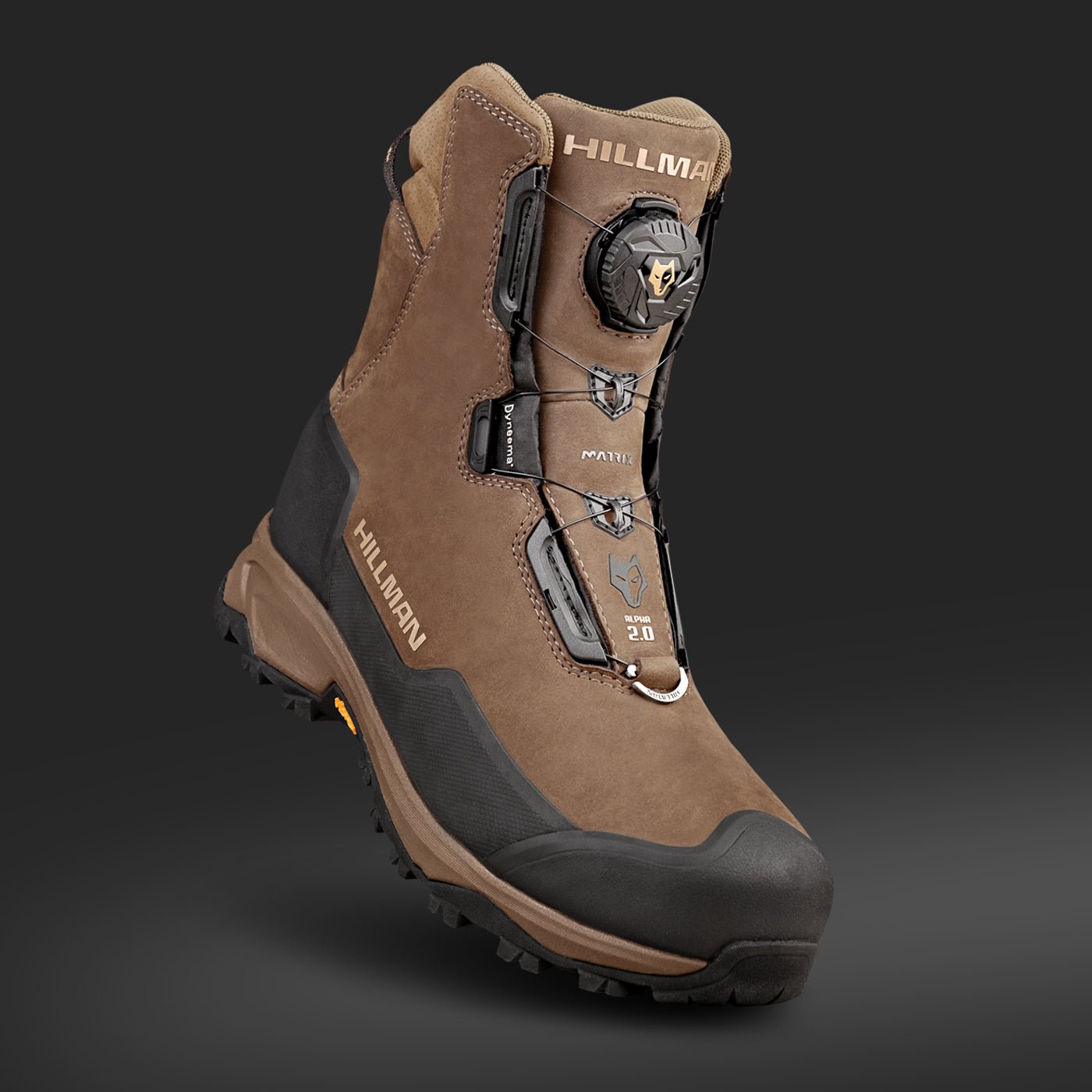
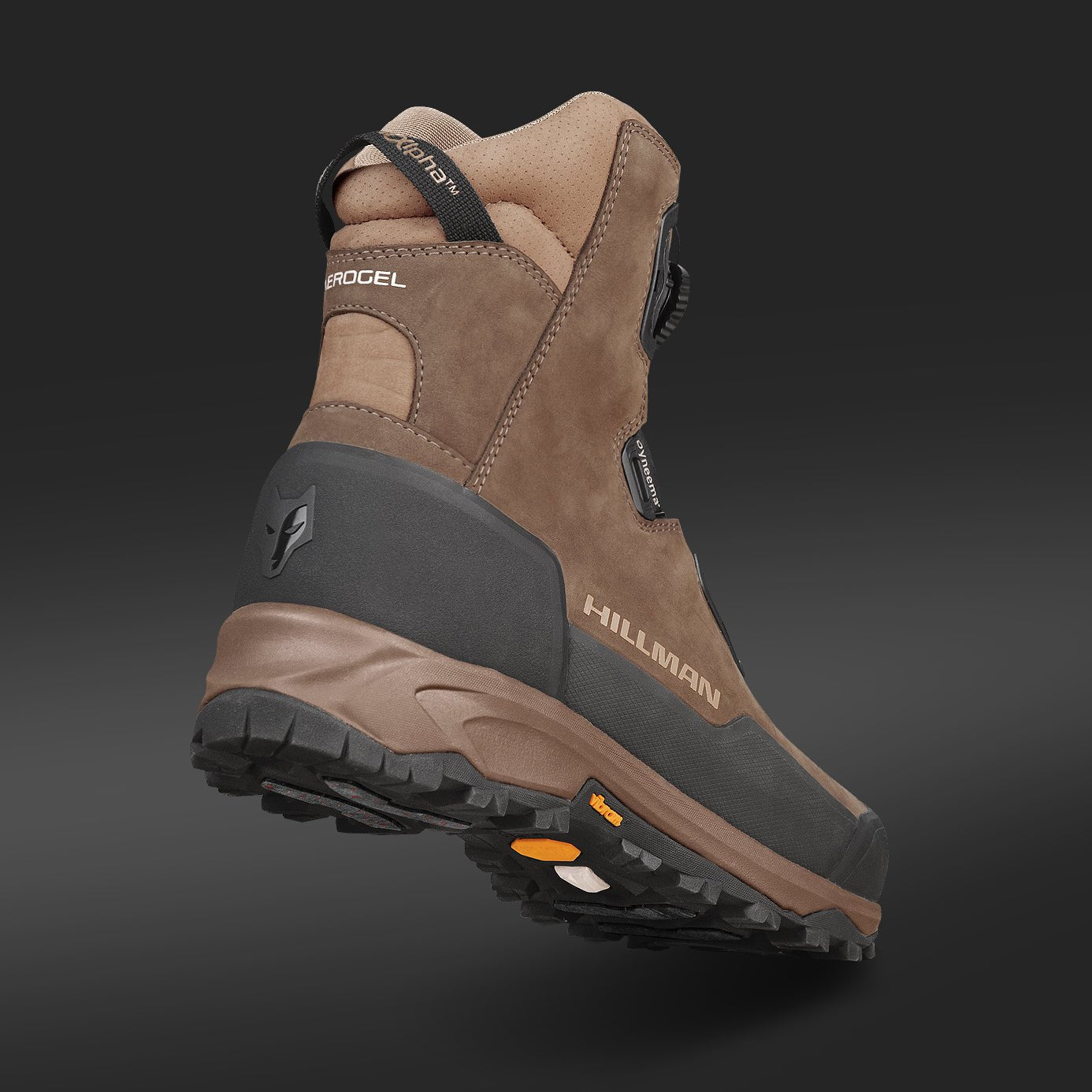
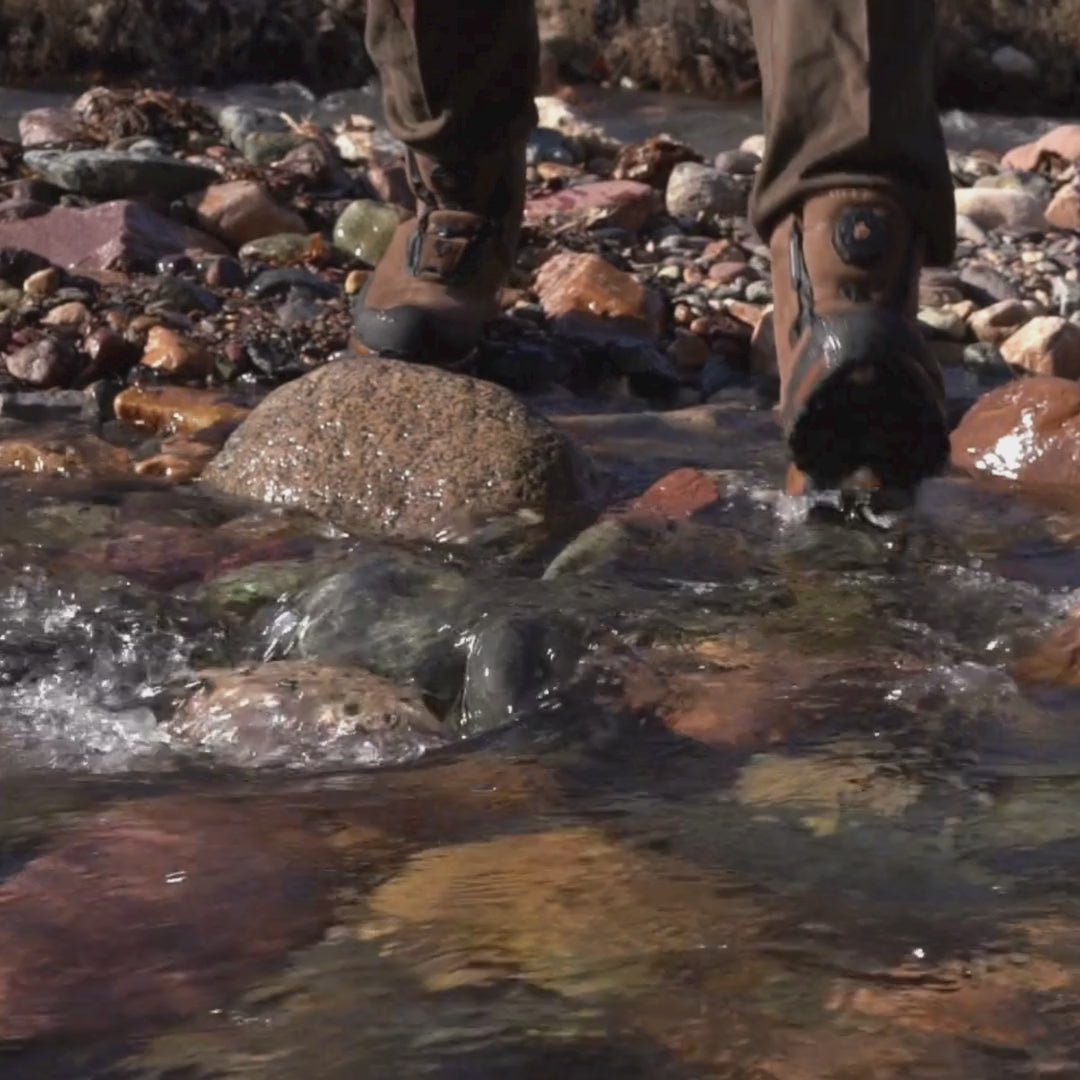
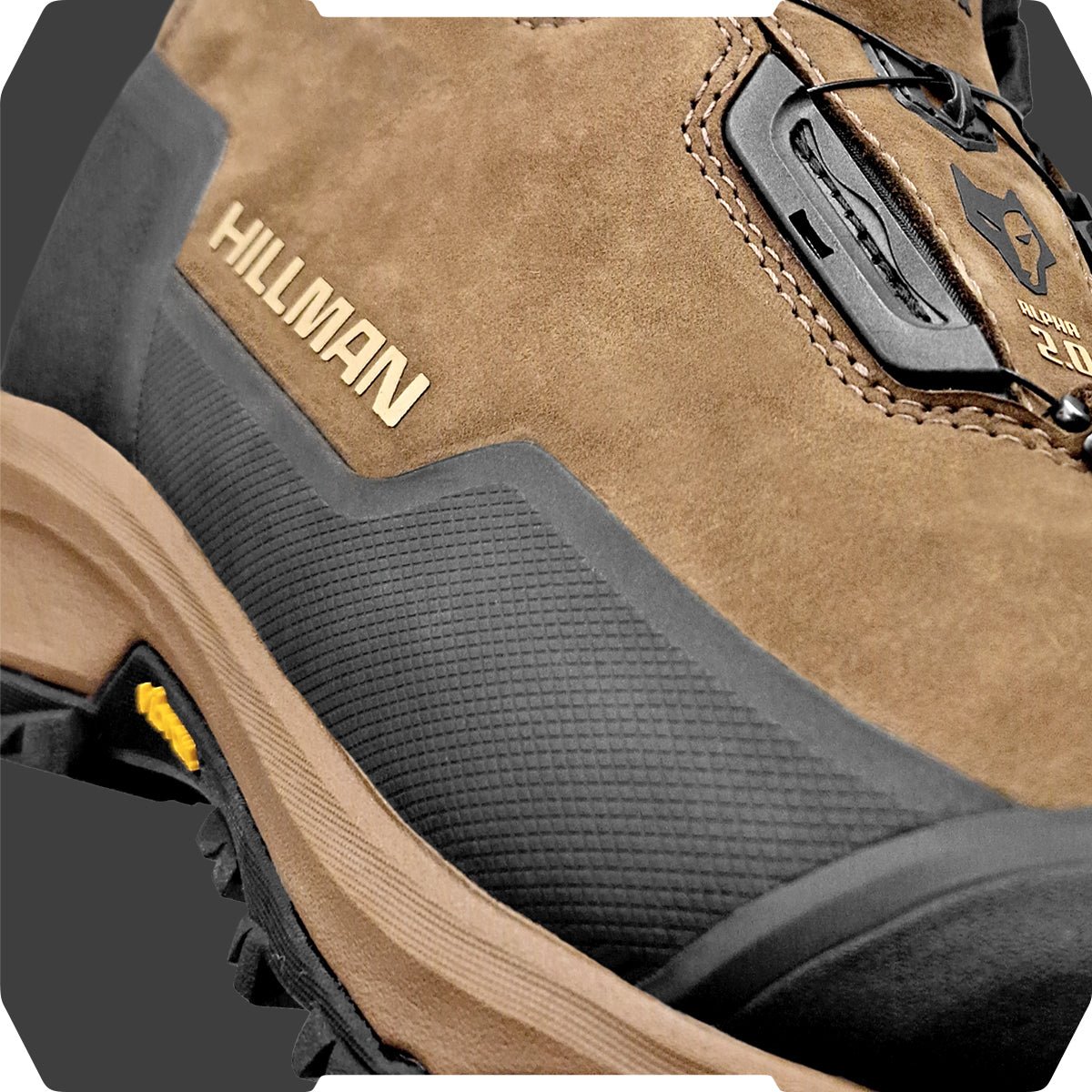




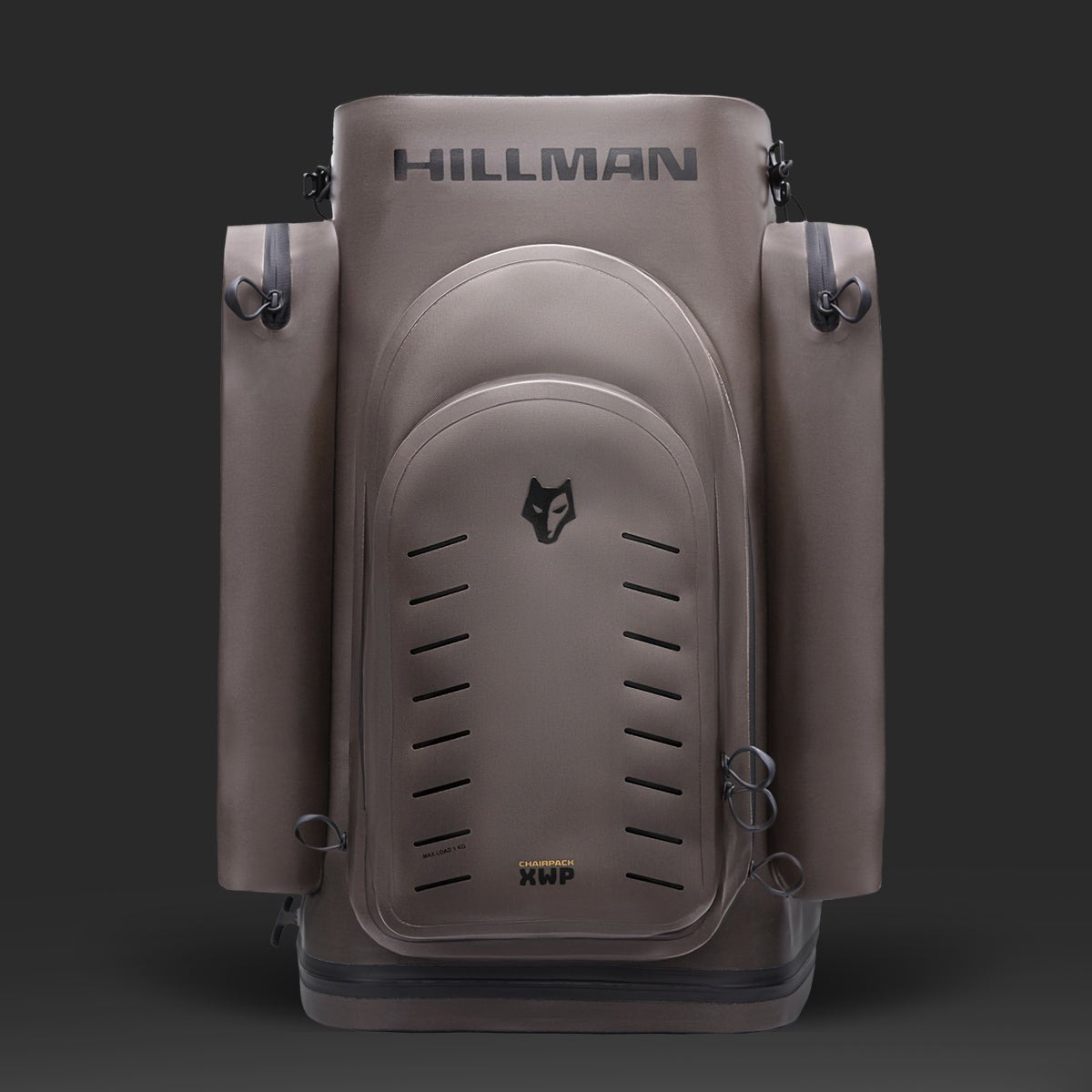
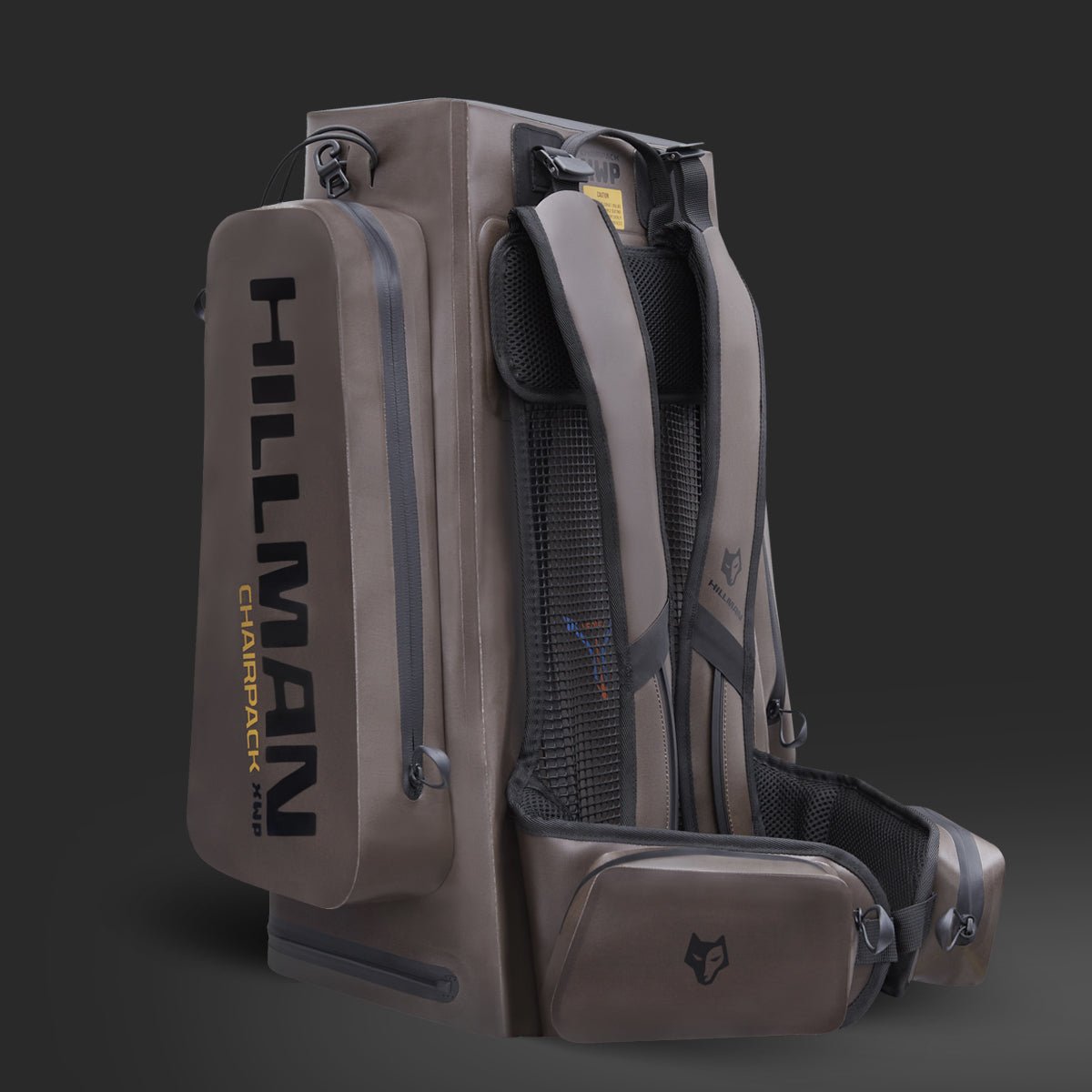
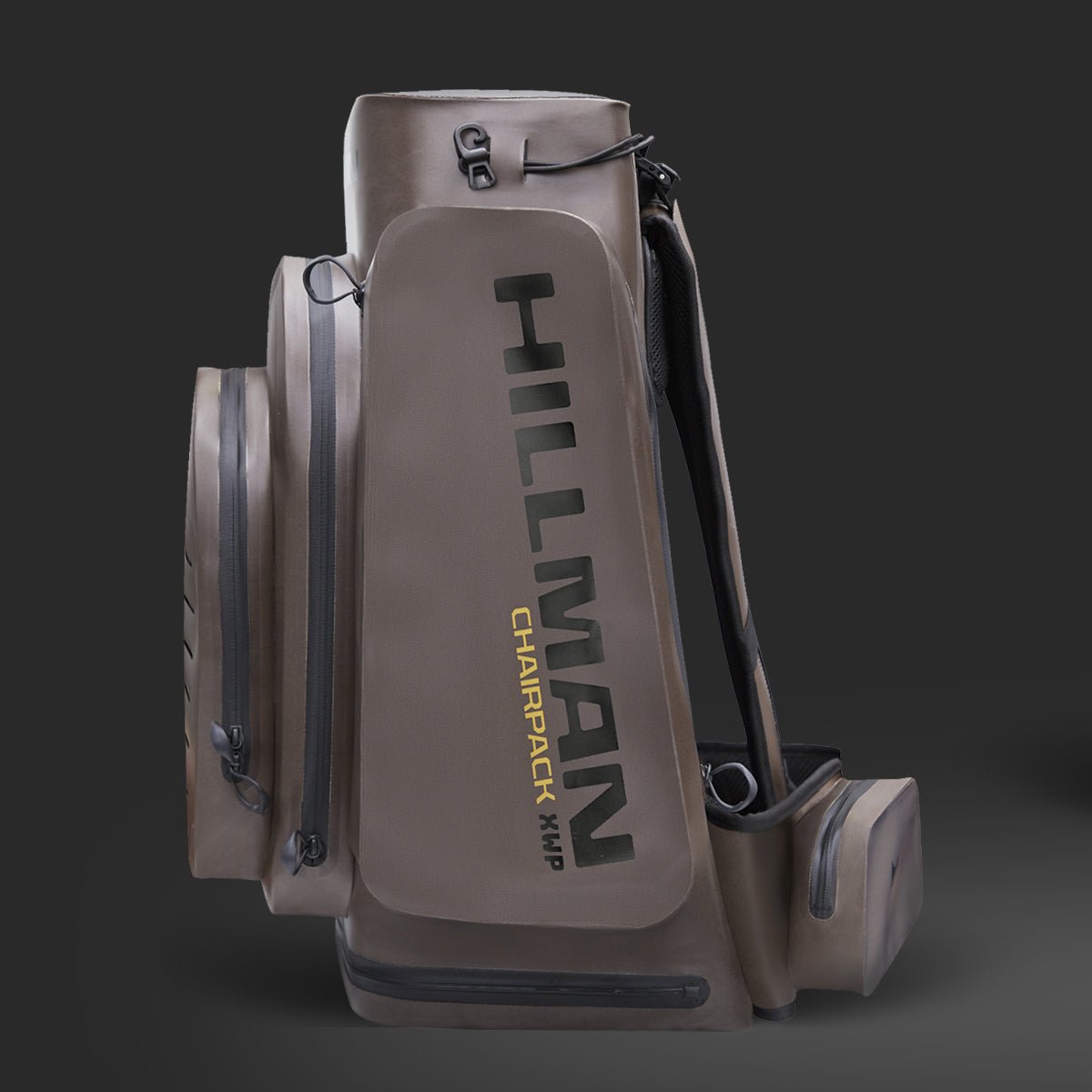
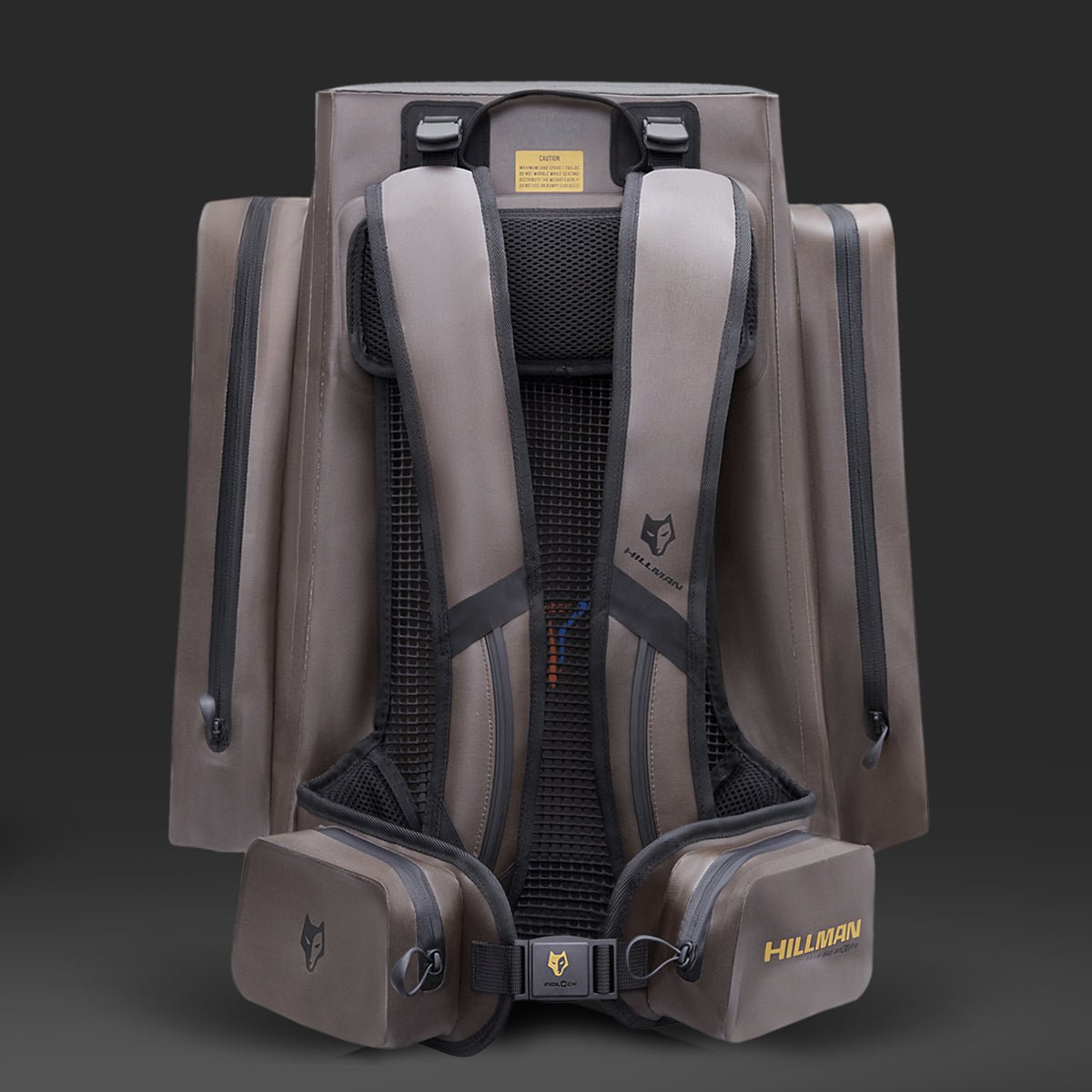

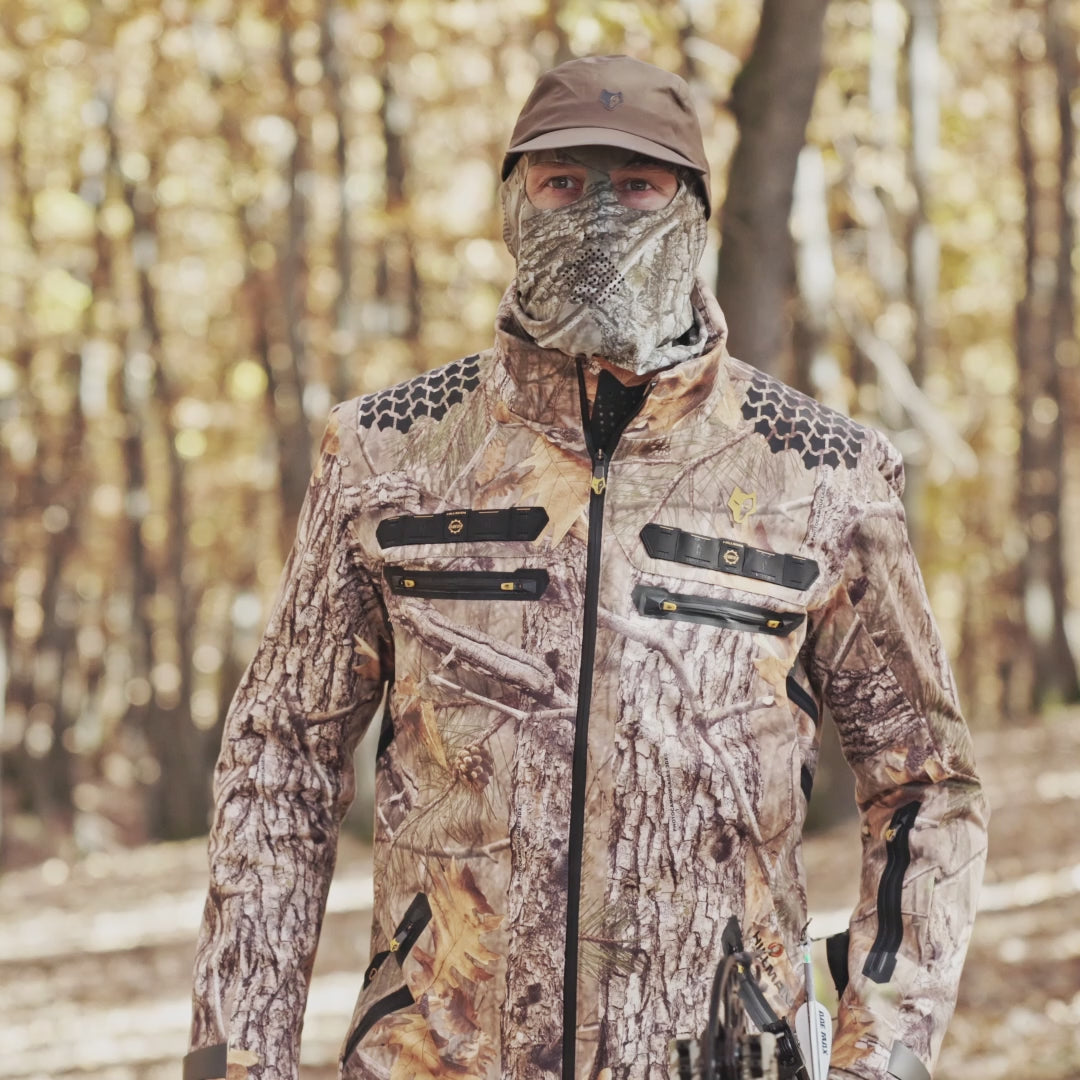



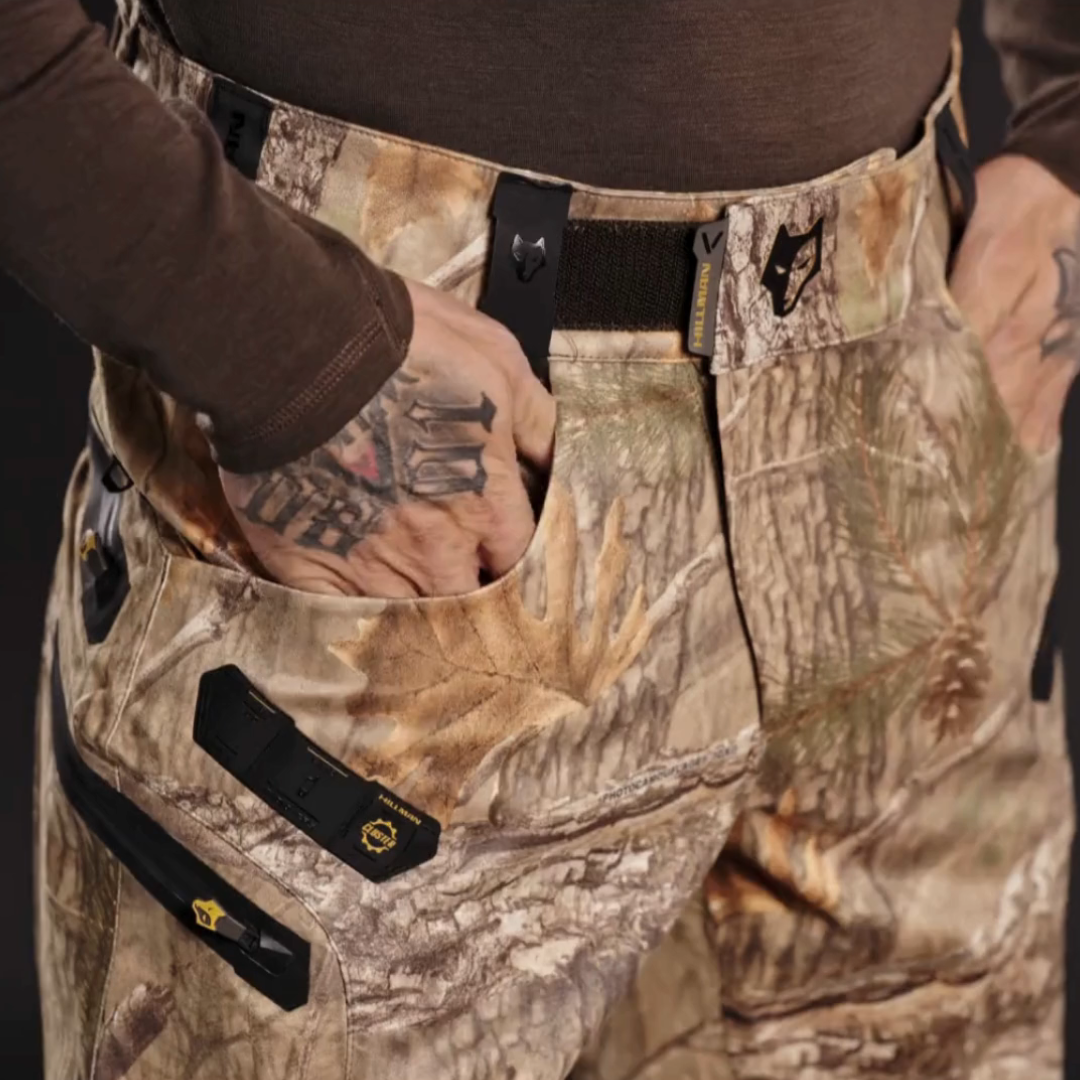







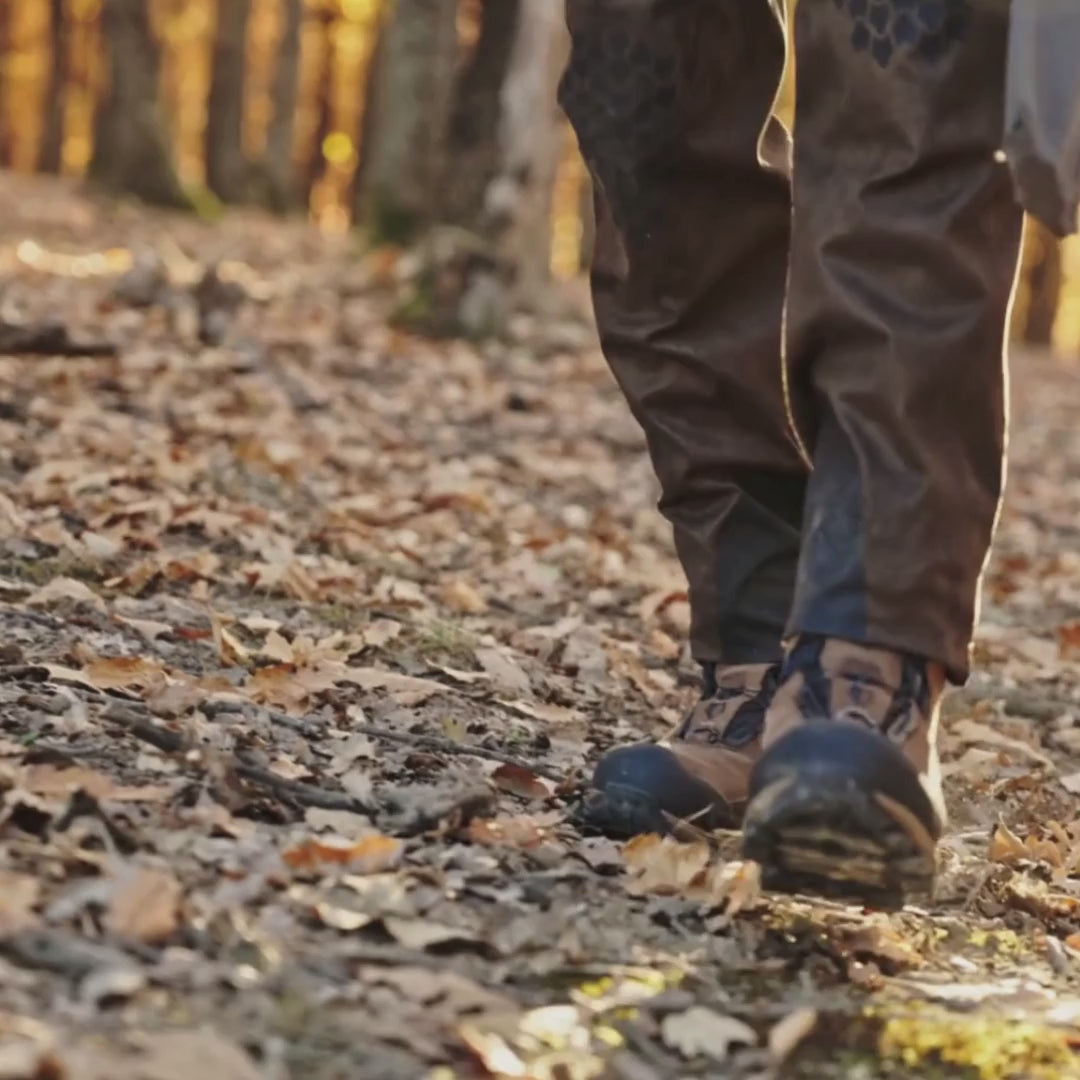
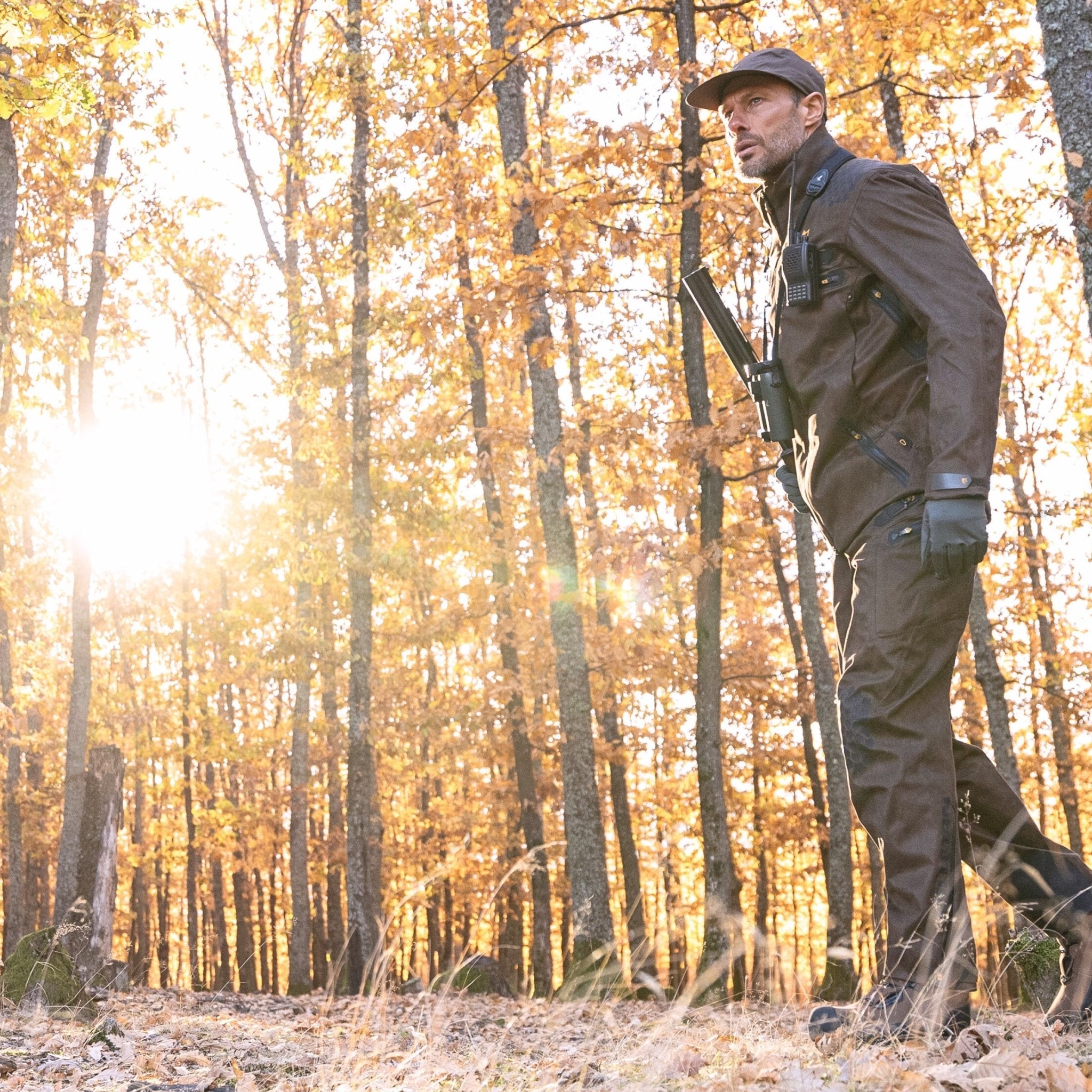
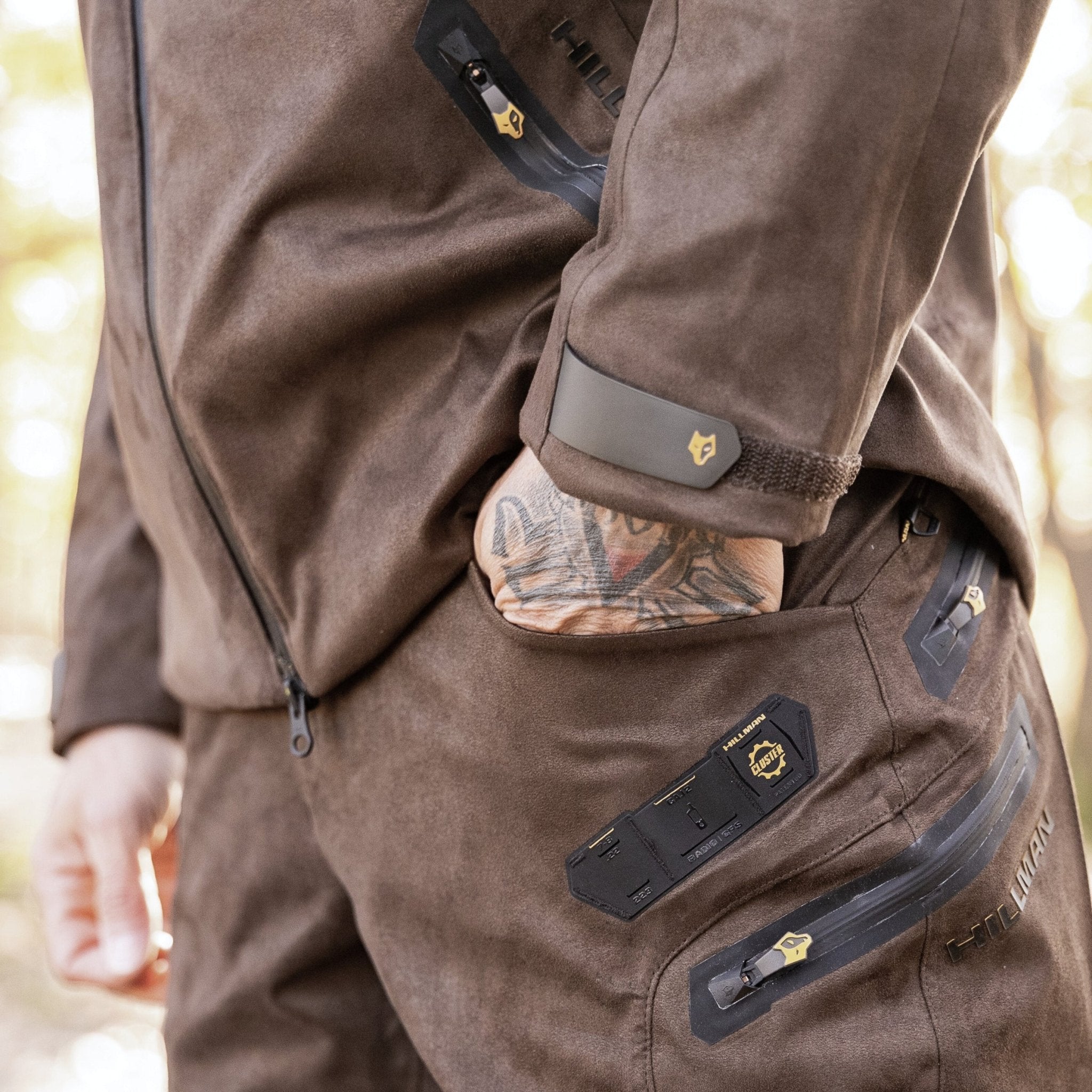





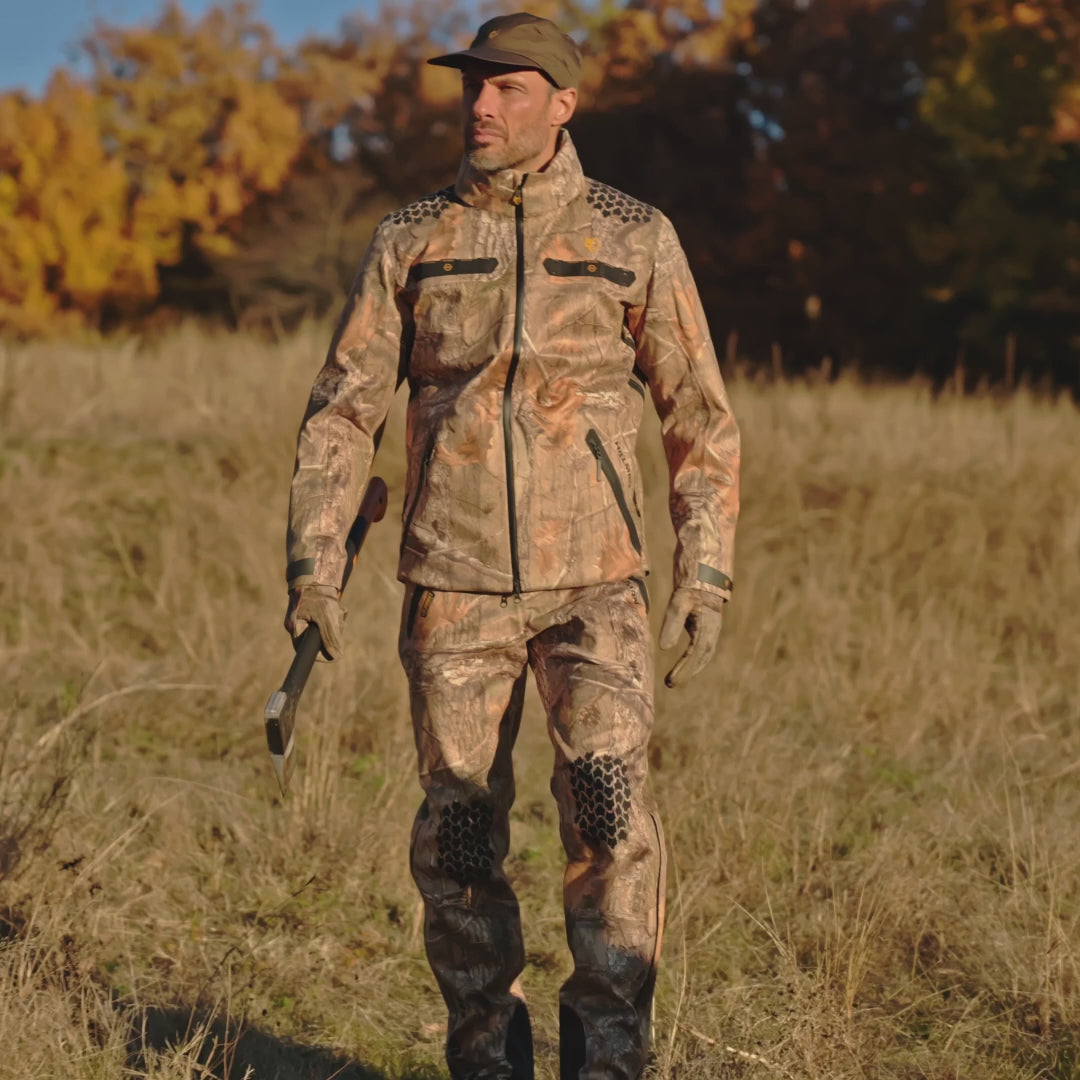


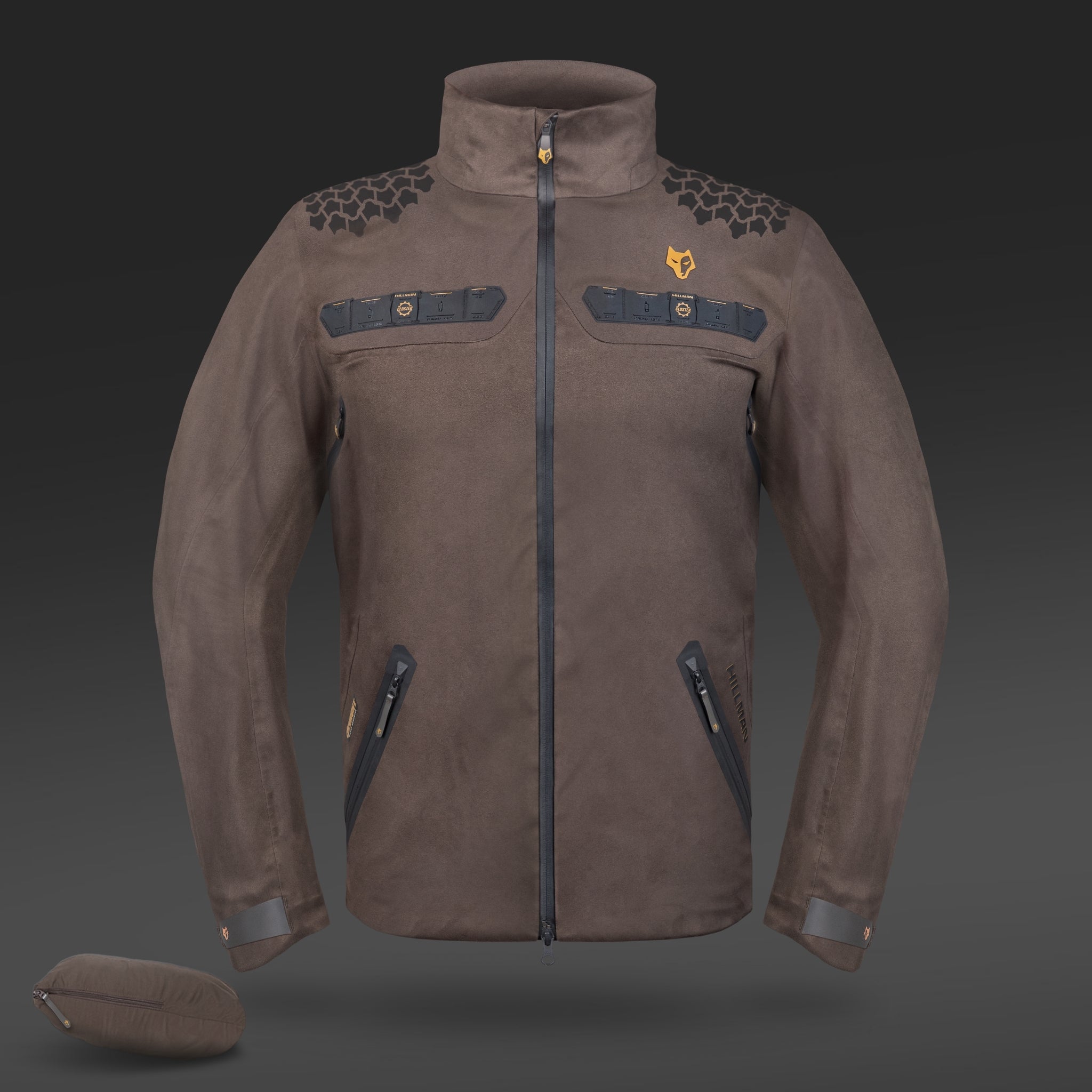
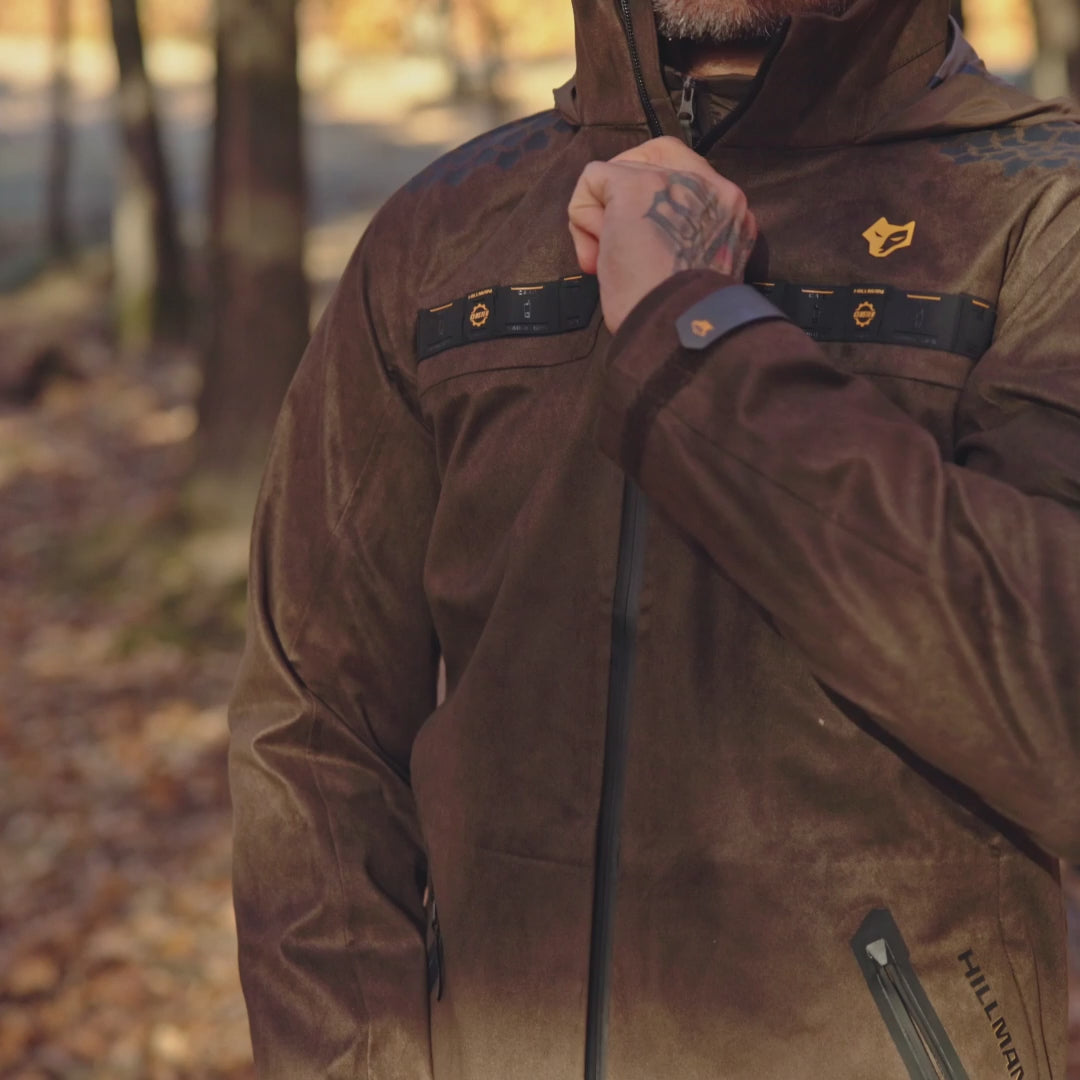


Share:
The Best Hunting Rain Gear for Hunters: 2025 Guide